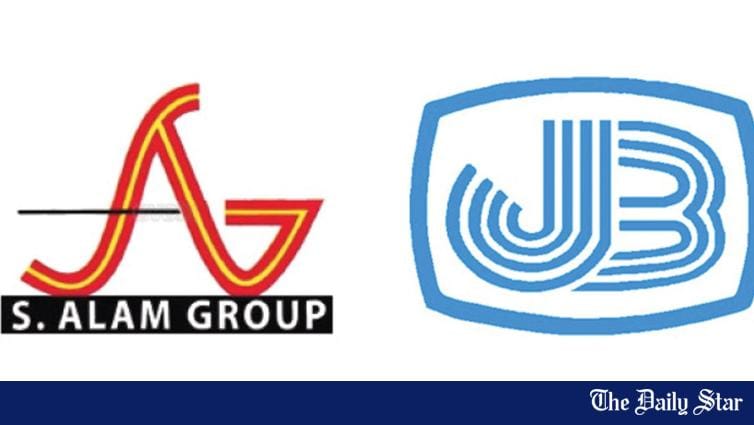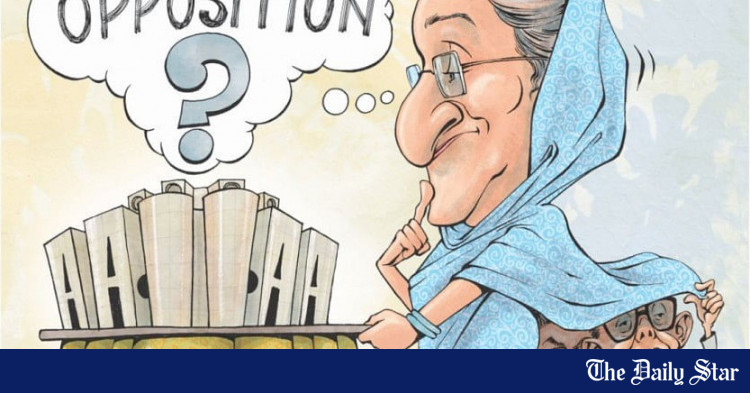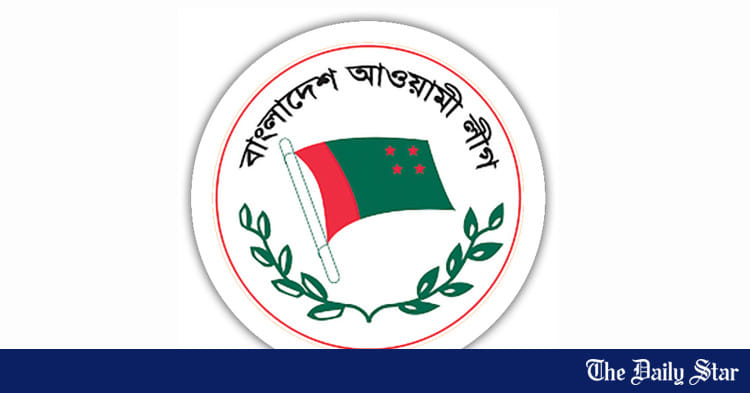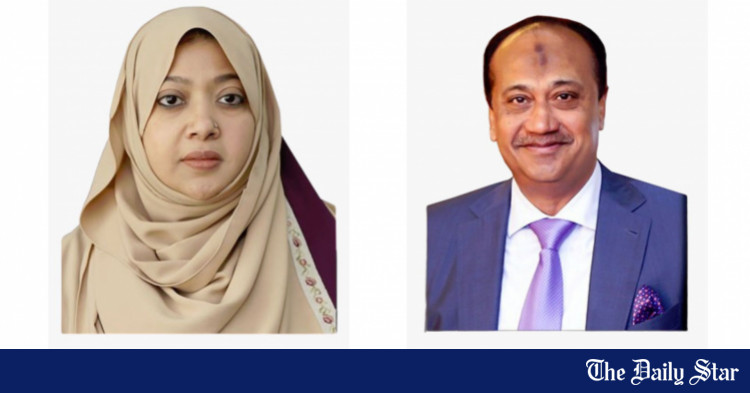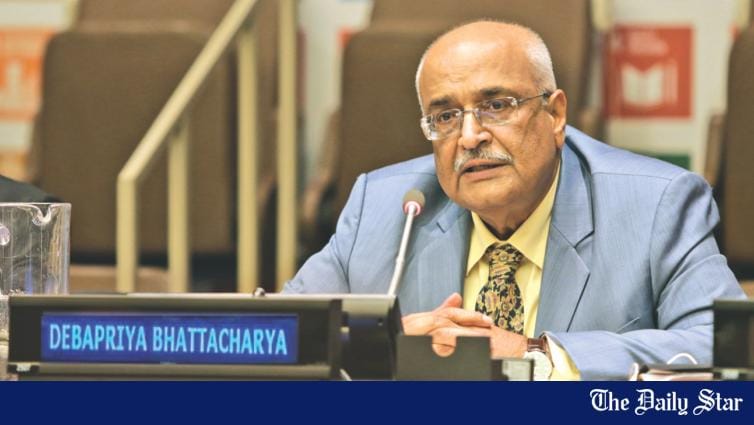Saif
Senior Member
- Joined
- Jan 24, 2024
- Messages
- 17,175
- Likes
- 8,163
- Nation

- Residence

- Axis Group


‘Big defaulters won’t be spared’
Finance Adviser Salehuddin Ahmed has vowed to mete out exemplary punishment to big loan defaulters as the interim government scrambles to fix the ailing banking sector of Bangladesh.
‘Big defaulters won’t be spared’
Finance Adviser Salehuddin Ahmed shares his plan to discipline rogues in banking sector

Finance Adviser Salehuddin Ahmed has vowed to mete out exemplary punishment to big loan defaulters as the interim government scrambles to fix the ailing banking sector of Bangladesh.
The new government has begun its journey with banks struggling to cope with a ballooning bad debt. At the end of March, delinquent loans increased to Tk 182,295 crore, the highest in the history of Bangladesh. That means 11.1 percent of the disbursed loans have soured. The amount is even higher if outstanding rescheduled loans and outstanding restructured written-off loans are taken into account.
"How did it happen?" said Salehuddin, who worked as the central bank governor from 2005 to 2009. He presided over the financial system during the army-backed caretaker government until Sheikh Hasina formed a new administration.
In an exclusive interview with The Daily Star on Thursday, Salehuddin, the head of the finance ministry, spoke about his plans to take recourse to the judiciary to punish the big loan defaulters and tackle the ongoing situation through the central bank. On Friday, he got the additional charge of the commerce ministry.
"Big defaulters will not be spared. If necessary, we will urge the chief justice to form a special bench [to deal with such cases]," he said.
Salehuddin pointed out that the central bank, along with the banks, has a responsibility to reduce bad loans. He has already talked to new Bangladesh Bank Governor Ahsan H Mansur who assured him of taking stern action against the loan defaulters, including the big ones.
As part of the immediate steps to rein in default loans, the central bank will discontinue concessions and rescheduling facilities enjoyed by the loan defaulters over the years, Salehuddin said.
The interim government headed by Nobel laureate Prof Muhammad Yunus took charge earlier this month with a pledge to bring reforms as demanded by the student movement against discrimination that ousted Hasina.
Despite uncertainties amid chaos in the immediate aftermath of the uprising, the political changeover has brought optimism among economists and civil society who expect big changes, especially in the economic sector.
Salehuddin said they took charge when the country was reeling from a multi-pronged economic crisis caused by domestic issues alongside global headwinds. There were regulatory failures and irregularities in the name of development.
The adviser pointed out inflation, banking sector irregularities, low revenue collection, a sharp decline in foreign currency reserves, money laundering, and graft as the key challenges to the economy.
Along with restoring law and order, the government has prioritised steps to wipe out setbacks to economic growth, he said. The new central bank governor was appointed in a swift move to fill a vacuum created by the resignation of his predecessor. The interim government was also working to bring changes to the posts of chairman of different banks, he added.
In the past financial sector, rules and regulations were violated using "special power". For example, the single exposure limit was not followed in disbursing loans, Salehuddin said.
The new government has stopped such irregularities, he said.
"Most importantly, transparency and accountability in the financial sector have been ensured," he added.
The adviser said he has asked officials to end the culture of passing the buck in the sector where everyone has to take responsibility and be accountable.
Asked about medium-term reform plans, he said the authorities would bring some necessary changes to the financial and banking sectors, and he has talked with the development partners about the matter.
"Some reforms are required urgently which we will ensure," he said.
On the other hand, establishing a banking commission could be part of long-term reforms. The interim government may take initiatives to this end, he added.
CENTRAL BANK AUTONOMY
The full autonomy of the Bangladesh Bank has always been in question in the past. The finance adviser said the issue depends on the person who remains at the helm of the regulator.
"The Bangladesh Bank Order is a very good law which provides enough authority to the central bank. Yes, there are issues which demand discussion with the government. However, those are not day-to-day issues," he said.
It is the central bank's full authority to decide what will be the country's monetary policy, and interest or exchange rates. Besides, it is also the duty of the central bank to act against loan defaulters, Salehuddin said.
In his view, the central bank has enough autonomy. There are some limitations mainly because of the Bank Company Act.
The Daily Star asked whether the interim government will support the central bank when the latter needs to increase the policy rate to tame inflation and boost reserves, or slightly raise the crawling peg mid-rate against the dollar.
Salehuddin said the central bank governor has talked about revisiting some rates and spoke about the differences.
He said Governor Mansur will work to this end because if these issues are not addressed, then there will be uncertainty over inward remittances and the currency market.
DEVELOPMENT PARTNERS
The finance adviser identified development projects, some of which have not started while some are ongoing, as the biggest issue for the interim government.
Bangladesh's development partners also wanted to know the interim government's position on the projects and they were informed that the ongoing projects will continue.
However, some large projects could be placed at the Executive Committee of the National Economic Council.
This newspaper asked him whether the interim government would seek budget support from international development partners such as the World Bank and the International Monetary Fund to ease pressure on reserves.
Salehuddin said support from development partners is not a "big issue" when it comes to improving the reserves, for which he emphasised increasing export earnings and remittances, and bringing more foreign direct investments.
The development partners set different conditions in line with Bangladesh's economic reforms in their loan programmes and these reforms are also the interim government's priority, he said.
If their priorities match, then the government will be able to secure funds from the development partners, Salehuddin said.
The development partners have pledged budget and project support if the government continues going forward on the path it has taken, he added.
MONEY LAUNDERING
Salehuddin also vowed action against money launderers, saying the government has heard about flights of foreign currencies from the country and it will look into the matter seriously.
The government has a committee on money laundering but it has not held a single meeting in the past two and a half years.
The committee sat on Wednesday within a week of the interim government taking charge.
Salehuddin said the committee has a list of money launderers and that it was asked to include names of old launderers alongside new ones.
Also, the government has ordered investigation authorities to make their job visible by conducting quick probes into allegations of money laundering.
Salehuddin said he has directed the National Board of Revenue to fix the collection system since revenue is crucial for the country's economy and the government's operations.
Although the digitalisation of revenue collection has been talked about for a long time, it has not been completed. The government will solve this problem soon, Salehuddin said.
He also said the current government will allow the universal pension scheme, introduced by the Hasina administration, to continue as many developed countries have strong social safety schemes, including health insurance.
However, some of the components of the universal pension scheme will be revisited, he added.
Finance Adviser Salehuddin Ahmed shares his plan to discipline rogues in banking sector
Finance Adviser Salehuddin Ahmed has vowed to mete out exemplary punishment to big loan defaulters as the interim government scrambles to fix the ailing banking sector of Bangladesh.
The new government has begun its journey with banks struggling to cope with a ballooning bad debt. At the end of March, delinquent loans increased to Tk 182,295 crore, the highest in the history of Bangladesh. That means 11.1 percent of the disbursed loans have soured. The amount is even higher if outstanding rescheduled loans and outstanding restructured written-off loans are taken into account.
"How did it happen?" said Salehuddin, who worked as the central bank governor from 2005 to 2009. He presided over the financial system during the army-backed caretaker government until Sheikh Hasina formed a new administration.
In an exclusive interview with The Daily Star on Thursday, Salehuddin, the head of the finance ministry, spoke about his plans to take recourse to the judiciary to punish the big loan defaulters and tackle the ongoing situation through the central bank. On Friday, he got the additional charge of the commerce ministry.
"Big defaulters will not be spared. If necessary, we will urge the chief justice to form a special bench [to deal with such cases]," he said.
Salehuddin pointed out that the central bank, along with the banks, has a responsibility to reduce bad loans. He has already talked to new Bangladesh Bank Governor Ahsan H Mansur who assured him of taking stern action against the loan defaulters, including the big ones.
As part of the immediate steps to rein in default loans, the central bank will discontinue concessions and rescheduling facilities enjoyed by the loan defaulters over the years, Salehuddin said.
The interim government headed by Nobel laureate Prof Muhammad Yunus took charge earlier this month with a pledge to bring reforms as demanded by the student movement against discrimination that ousted Hasina.
Despite uncertainties amid chaos in the immediate aftermath of the uprising, the political changeover has brought optimism among economists and civil society who expect big changes, especially in the economic sector.
Salehuddin said they took charge when the country was reeling from a multi-pronged economic crisis caused by domestic issues alongside global headwinds. There were regulatory failures and irregularities in the name of development.
The adviser pointed out inflation, banking sector irregularities, low revenue collection, a sharp decline in foreign currency reserves, money laundering, and graft as the key challenges to the economy.
Along with restoring law and order, the government has prioritised steps to wipe out setbacks to economic growth, he said. The new central bank governor was appointed in a swift move to fill a vacuum created by the resignation of his predecessor. The interim government was also working to bring changes to the posts of chairman of different banks, he added.
In the past financial sector, rules and regulations were violated using "special power". For example, the single exposure limit was not followed in disbursing loans, Salehuddin said.
The new government has stopped such irregularities, he said.
"Most importantly, transparency and accountability in the financial sector have been ensured," he added.
The adviser said he has asked officials to end the culture of passing the buck in the sector where everyone has to take responsibility and be accountable.
Asked about medium-term reform plans, he said the authorities would bring some necessary changes to the financial and banking sectors, and he has talked with the development partners about the matter.
"Some reforms are required urgently which we will ensure," he said.
On the other hand, establishing a banking commission could be part of long-term reforms. The interim government may take initiatives to this end, he added.
CENTRAL BANK AUTONOMY
The full autonomy of the Bangladesh Bank has always been in question in the past. The finance adviser said the issue depends on the person who remains at the helm of the regulator.
"The Bangladesh Bank Order is a very good law which provides enough authority to the central bank. Yes, there are issues which demand discussion with the government. However, those are not day-to-day issues," he said.
It is the central bank's full authority to decide what will be the country's monetary policy, and interest or exchange rates. Besides, it is also the duty of the central bank to act against loan defaulters, Salehuddin said.
In his view, the central bank has enough autonomy. There are some limitations mainly because of the Bank Company Act.
The Daily Star asked whether the interim government will support the central bank when the latter needs to increase the policy rate to tame inflation and boost reserves, or slightly raise the crawling peg mid-rate against the dollar.
Salehuddin said the central bank governor has talked about revisiting some rates and spoke about the differences.
He said Governor Mansur will work to this end because if these issues are not addressed, then there will be uncertainty over inward remittances and the currency market.
DEVELOPMENT PARTNERS
The finance adviser identified development projects, some of which have not started while some are ongoing, as the biggest issue for the interim government.
Bangladesh's development partners also wanted to know the interim government's position on the projects and they were informed that the ongoing projects will continue.
However, some large projects could be placed at the Executive Committee of the National Economic Council.
This newspaper asked him whether the interim government would seek budget support from international development partners such as the World Bank and the International Monetary Fund to ease pressure on reserves.
Salehuddin said support from development partners is not a "big issue" when it comes to improving the reserves, for which he emphasised increasing export earnings and remittances, and bringing more foreign direct investments.
The development partners set different conditions in line with Bangladesh's economic reforms in their loan programmes and these reforms are also the interim government's priority, he said.
If their priorities match, then the government will be able to secure funds from the development partners, Salehuddin said.
The development partners have pledged budget and project support if the government continues going forward on the path it has taken, he added.
MONEY LAUNDERING
Salehuddin also vowed action against money launderers, saying the government has heard about flights of foreign currencies from the country and it will look into the matter seriously.
The government has a committee on money laundering but it has not held a single meeting in the past two and a half years.
The committee sat on Wednesday within a week of the interim government taking charge.
Salehuddin said the committee has a list of money launderers and that it was asked to include names of old launderers alongside new ones.
Also, the government has ordered investigation authorities to make their job visible by conducting quick probes into allegations of money laundering.
Salehuddin said he has directed the National Board of Revenue to fix the collection system since revenue is crucial for the country's economy and the government's operations.
Although the digitalisation of revenue collection has been talked about for a long time, it has not been completed. The government will solve this problem soon, Salehuddin said.
He also said the current government will allow the universal pension scheme, introduced by the Hasina administration, to continue as many developed countries have strong social safety schemes, including health insurance.
However, some of the components of the universal pension scheme will be revisited, he added.


































